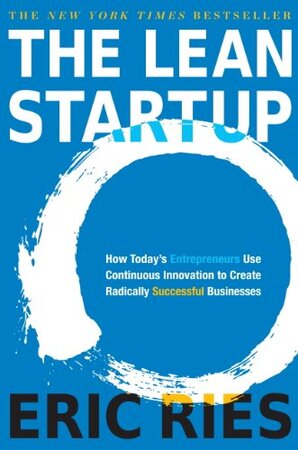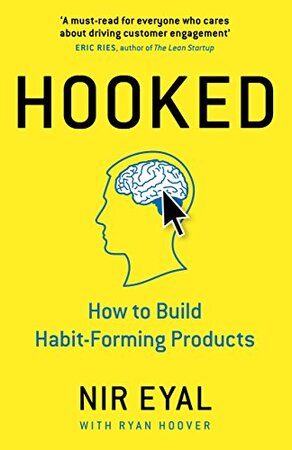
The Lean Startup
“The Lean Startup by Eric Ries is a groundbreaking book that revolutionizes the way startups and established companies approach entrepreneurship and product development. Ries introduces the concept of the Lean Startup methodology, which emphasizes a scientific approach, rapid iteration, and validated learning.
Unveiling Entrepreneurial Challenges and Revolutionizing Business Models
The book begins by highlighting the challenges faced by entrepreneurs and the high failure rate of startups. Ries argues that the traditional business model, with its focus on elaborate planning, long development cycles, and product launches without customer feedback, is flawed. Instead, he proposes a new approach that helps entrepreneurs build successful businesses while minimizing risk and maximizing efficiency.
The Build-Measure-Learn Feedback Loop and Validated Learning
Central to the Lean Startup methodology is the concept of the “Build-Measure-Learn” feedback loop. Ries emphasizes the importance of creating a minimum viable product (MVP) – a basic version of the product or service that allows entrepreneurs to gather feedback from early adopters. By obtaining real-world data, entrepreneurs can then measure the impact of their product and learn from customer reactions and behavior.
The Lean Startup also introduces the concept of “validated learning.” Ries stresses the importance of using data and feedback to validate assumptions and hypotheses. This approach encourages entrepreneurs to adopt a scientific mindset, treating their business as an experiment where each iteration brings them closer to the right solution.
Innovation Accounting, Pivot, and Continuous Improvement
Ries further explores the principles and techniques of the Lean Startup, including the use of innovation accounting to measure progress, the concept of pivot (a strategic change in direction based on learning), and the importance of continuous improvement and adaptation.
From Startup Risks to Diverse Industries
The book also delves into topics such as identifying and addressing startup risks, creating sustainable growth, and fostering a culture of innovation within organizations. Ries shares insightful case studies and examples from both successful and unsuccessful startups to illustrate key concepts and principles.
One of the notable aspects of The Lean Startup is its applicability to various industries and types of organizations. Ries acknowledges that the Lean Startup methodology can benefit not only technology startups but also companies in sectors such as healthcare, manufacturing, and non-profit organizations.
Embracing a New Approach to Innovation
Throughout the book, Ries emphasizes the importance of embracing uncertainty and taking a systematic approach to entrepreneurship. He challenges the traditional notion of planning and encourages entrepreneurs to focus on rapid experimentation, validated learning, and iterative development.
The Lean Startup has had a profound impact on the startup community and beyond. It has sparked a new way of thinking about entrepreneurship, inspiring countless entrepreneurs and organizations to adopt the Lean Startup methodology and transform their approach to innovation.
In summary, The Lean Startup by Eric Ries offers a paradigm shift in the world of entrepreneurship. It provides a practical framework for entrepreneurs and organizations to navigate the challenges of building successful businesses in an uncertain and rapidly changing market. By emphasizing the importance of continuous innovation, customer feedback, and validated learning, Ries presents a roadmap for creating radically successful businesses in today’s dynamic business landscape.











